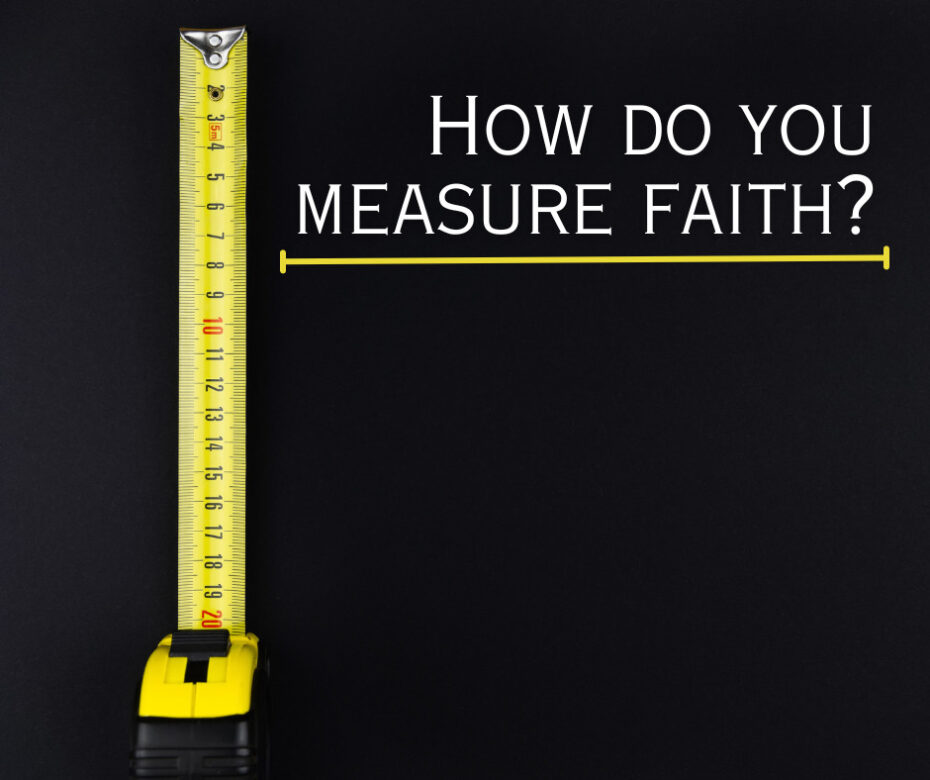A friend of mine recently had a great way to describe faith. He said it is a state. It is not quantitative.
We usually don’t use such words to define faith, but they are very appropriate. Most people think of faith as quantitative; they think we can measure how much we believe something. For example, we might say, “He really believes that,” or, “You need to grow in your faith,” or “He didn’t believe enough.”
I can think of a couple of examples in which we encounter such language to express one’s view of faith. A person may pray for something, such as a new job. If he doesn’t get the job, another person might say it was because he didn’t have enough faith. If he had believed a little more, God would have given him the job.
A tragic example of this view occurs when people go to healing services. The charlatans who lead these services tell the people that they will be healed if their faith is great enough. How convenient for the faith healer. When the healing doesn’t take place, it’s not the fault of the healer. It was because the quantity of faith on the part of the person seeking healing was not sufficient.
But faith is not like that. Faith is being convinced that something is true. It is a state. You either are or are not convinced it is true. When you believe something, we could say that you’re in a state of being convinced. I am convinced that George Washington was our first president. I don’t grow in my faith that he was. If I earn a PhD in history, I won’t have greater faith that he was.
But there are places in the NT that speak of “great” faith. What do we make of such verses (Matt 8:10; 15:28)? In cases like these, the people involved are believing something new. They do not grow in what they already believe. The new thing is different. It is described as “great” because the additional thing is not commonly believed.
At the moment of faith, the unbeliever becomes convinced that Jesus, through faith alone, gives eternal life as a free gift that can never be lost. You cannot become more convinced of that. You either believe it or you don’t.
But after believing that, the believer can find in the NT many additional things that Jesus taught. The more of these teachings the believer is convinced is true, the greater his faith. For example, a believer might read about laying up treasures in heaven and, as a result, give part of his salary to a Free Grace church or ministry. He is convinced that what Jesus said is true. Another believer does not believe what the Lord has said about such things. He is not convinced that it is wise to invest in a kingdom he cannot see. The first believer has a greater faith, but not because he believes in rewards more than the second believer. The second believer doesn’t believe in rewards at all. The first believer has a greater faith because he believes something the other one doesn’t.
The application is clear. We should not use phrases like, “Did I really believe?” or, “Did he believe enough?” That treats faith like a quantitative entity. Instead, we should simply ask if we believe the things the Scriptures teach. Are we convinced they are true? When we are, then we have faith. The more things we believe, the more likely the Lord will look at us and proclaim that we have great faith.


